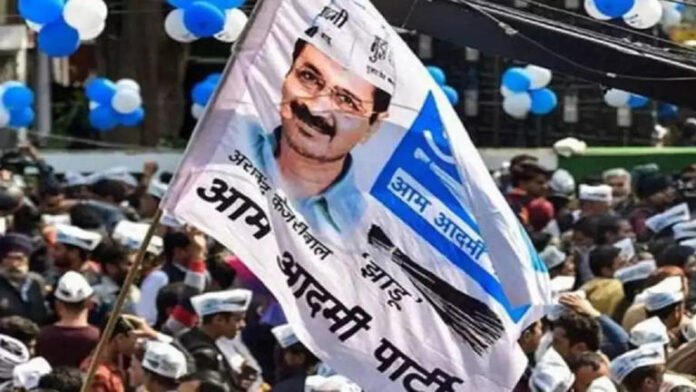The Enforcement Directorate (ED) has informed a Delhi court of its decision to name the Aam Aadmi Party (AAP) as an accused in the ongoing Delhi Excise Policy case. This move marks a dramatic escalation in the investigation into alleged irregularities and corruption linked to the now-scrapped excise policy introduced by the Delhi government.
The Delhi Excise Policy, which was introduced in 2021, aimed to overhaul the liquor trade in the capital by privatizing sales and closing down government-run liquor shops. The policy was intended to increase revenue and curb the illegal liquor trade. However, it quickly came under scrutiny, with allegations surfacing about corruption and favoritism in the awarding of licenses to private vendors.
The ED, which investigates financial crimes, has been probing the money laundering aspect of these allegations. According to sources, the agency has gathered substantial evidence pointing to the involvement of high-ranking AAP officials in financial misconduct. During a recent hearing, the ED’s counsel informed the court of their intent to officially name the AAP as an accused party in the case. This decision follows months of investigation, during which several AAP members and associated businessmen have been questioned.
The ED’s move to formally implicate the AAP has sparked a political storm. The party, led by Delhi Chief Minister Arvind Kejriwal, has vehemently denied any wrongdoing. In a press statement, Kejriwal described the allegations as politically motivated, aiming to tarnish the image of his party ahead of the 2024 general elections. “This is a clear attempt to derail our efforts and distract the public from the real issues. We have always maintained the highest standards of integrity and transparency,” Kejriwal asserted.
Despite the AAP’s denials, the controversy surrounding the excise policy has already had significant repercussions. The policy itself was withdrawn in July 2022, following a directive from Delhi Lieutenant Governor Vinai Kumar Saxena, who cited “grave irregularities” and “procedural lapses” in its implementation. The withdrawal was seen as a major setback for the AAP government, which had touted the policy as a progressive reform.
Critics of the AAP argue that the ED’s latest action lends credence to longstanding allegations of corruption within the party. The Bharatiya Janata Party (BJP), AAP’s main political rival, has been vocal in its criticism. BJP spokesperson Sambit Patra stated, “The naming of AAP as an accused confirms what we have been saying all along. This party talks about honesty but engages in corrupt practices behind the scenes.”
Legal experts suggest that the ED’s decision could lead to a protracted legal battle. Being named as an accused means that the AAP, as a political entity, will have to defend itself in court, which could involve extensive legal proceedings and potential penalties if found guilty. The case’s outcome could also have significant political ramifications, potentially affecting AAP’s standing both in Delhi and at the national level.
The broader implications of this development cannot be overstated. The case has once again highlighted the complex interplay between politics and law enforcement in India. It raises questions about the use of investigative agencies in political battles and the impact such investigations can have on public perception and electoral outcomes.
As the case progresses, all eyes will be on the court proceedings and the evidence presented by the ED. The AAP’s defense will be closely scrutinized, and the party will need to navigate this crisis carefully to maintain its image as a party committed to clean governance. Meanwhile, the political landscape in Delhi and beyond is set for further turbulence as this high-profile case unfolds.
In addition, the decision to name the AAP as an accused in the Delhi Excise Policy case marks a pivotal moment in the ongoing investigation. It underscores the gravity of the allegations and sets the stage for a significant legal and political confrontation. The outcome will not only determine the fate of the excise policy but could also have far-reaching consequences for the AAP and the broader political arena in India.

